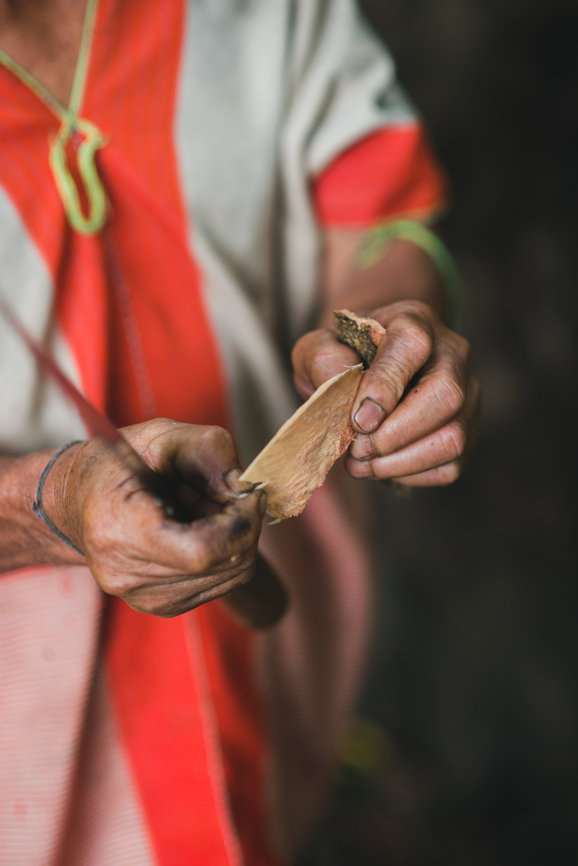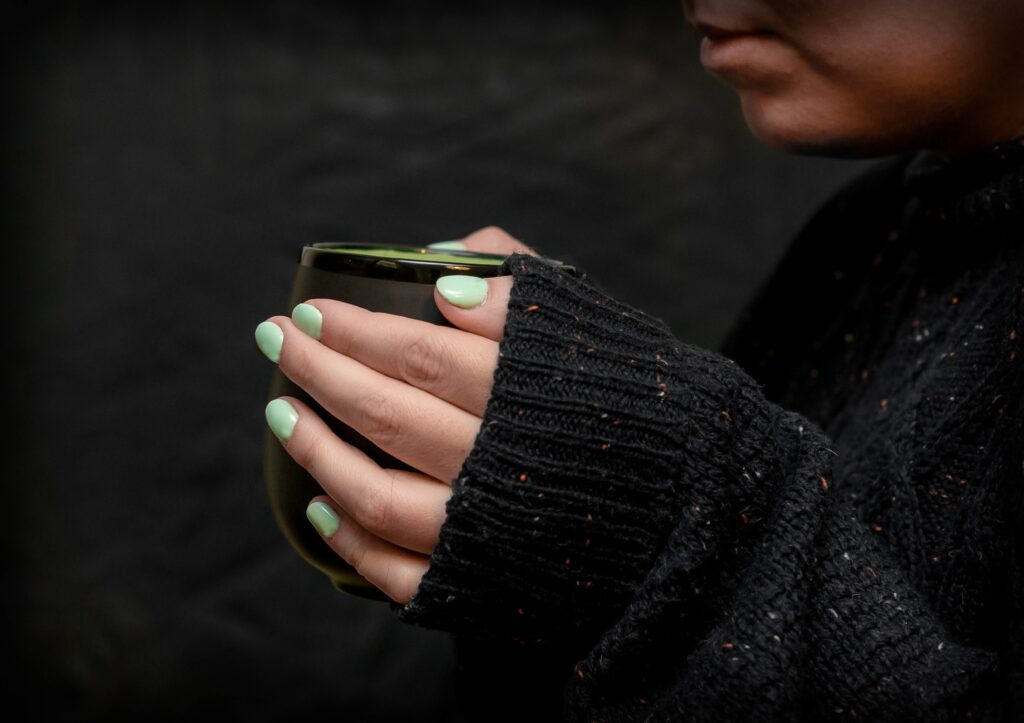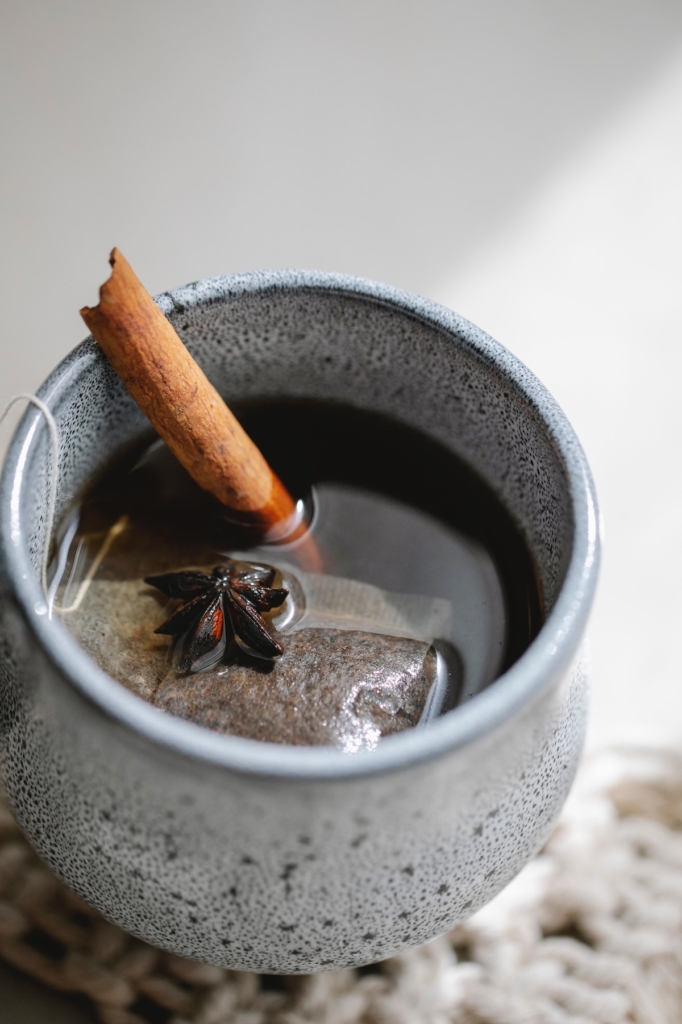CINNAMON IN EASTERN MEDICINE
Not Just A Spice

When you think of cinnamon, it probably brings to mind the smell of scented candles in the fall and coffee shops selling chai lattes, but did you know that cinnamon isn’t just for candles and lattes? It’s also known for having a slew of health benefits. Western doctors are beginning to prescribe it more and more for issues like hyperglycemia and diabetes. But when it comes to Eastern medicine, cinnamon has been used for thousands of years to treat a much wider range of illnesses and health problems.
Both Traditional Chinese Medicine (TCM) and Ayurvedic medicine recommend cinnamon as a prescription for everything from digestion to joint health. So the next time you hit up the spice aisle in your local grocery store, you might want to pick up some of this delicious and nutritious seasoning.
What Exactly Is Cinnamon?
 If you’re like most people in the West, you probably didn’t even realize that there’s more than one kind of cinnamon. In reality, there’s a few different types of cinnamon. In TCM, the most commonly used ones are Cinnamomum Cassia and Cinnamomum Verum (which is also known as Ceylon). The cinnamon tree is native to China, but these days it’s grown all over the world, in places like Sri Lanka, Mexico, and Indonesia.
If you’re like most people in the West, you probably didn’t even realize that there’s more than one kind of cinnamon. In reality, there’s a few different types of cinnamon. In TCM, the most commonly used ones are Cinnamomum Cassia and Cinnamomum Verum (which is also known as Ceylon). The cinnamon tree is native to China, but these days it’s grown all over the world, in places like Sri Lanka, Mexico, and Indonesia.
The bark of a cinnamon tree is peeled in the fall and left to dry up. As it dries, the edges curl up and it looks like a stick–hence the name cinnamon stick. In TCM, that’s known as Rou Gui. However, TCM practitioners also use the sliced twigs from cinnamon trees, known as Gui Zhi. A stick of medicinal Rou Gui may be as thick as your forearm, much is more potent than culinary cinnamon. Rou Gui is rather hot while gui zhi is warm. Depending on your health history, body, and ailment, your TCM practitioner can decide which form of cinnamon is best for you.
The Health Benefits of Cinnamon
Cinnamon isn’t just a delicious spice, it’s also been used for centuries as a medicine and health supplement. Here are some of the many health benefits of Cinnamon in Eastern medicine.
Warming Up
 In TCM, cinnamon is often used to treat yang deficiencies. One common disorder is Kidney yang deficiency, which can be caused by overwork, emotional trauma, chronic illness, and simply getting older. This usually shows up in patients as back pain, fatigue, depression and diarrhea. You might also notice that you feel cold, no matter how many blankets and sweaters you pile on. Cinnamon is a warming spice, so it helps to bring warmth back into the body and reinvigorate the Kidneys, where yang is produced. Chinese medicine practitioners value Rou Gui because it is one of very few herbs that warms what they call the mingmen, the metabolic fire that keeps us warm and alive,
In TCM, cinnamon is often used to treat yang deficiencies. One common disorder is Kidney yang deficiency, which can be caused by overwork, emotional trauma, chronic illness, and simply getting older. This usually shows up in patients as back pain, fatigue, depression and diarrhea. You might also notice that you feel cold, no matter how many blankets and sweaters you pile on. Cinnamon is a warming spice, so it helps to bring warmth back into the body and reinvigorate the Kidneys, where yang is produced. Chinese medicine practitioners value Rou Gui because it is one of very few herbs that warms what they call the mingmen, the metabolic fire that keeps us warm and alive,
Improving Circulation
In Traditional Chinese Medicine, the body has an energy network running throughout it called meridians. Qi travels throughout these pathways, bringing energy and vitality throughout the body. Cinnamon can clear out the heart, lung, and bladder meridians, so it’s good for when your Qi levels and circulation are less than ideal.
In Western medicine, cinnamon sticks are known for their ability to dilate blood vessels and boost circulation. Rou Gui is the best kind of cinnamon for circulation and obstructions.
Clearing Your Lungs
 The next time you wake up with a frog in your throat, make sure to add a dash of two of cinnamon to your morning coffee. In Ayurveda, mucus is caused by cold, dense Kapha energy. Cinnamon’s warm nature helps soothe your throat and clear out your airways by warming up and thinning out any congestion caused by too much Kapha. For a superpowered herbal concoction, try making a tea with cinnamon and ginger to clear out any phlegm stick in your lungs.
The next time you wake up with a frog in your throat, make sure to add a dash of two of cinnamon to your morning coffee. In Ayurveda, mucus is caused by cold, dense Kapha energy. Cinnamon’s warm nature helps soothe your throat and clear out your airways by warming up and thinning out any congestion caused by too much Kapha. For a superpowered herbal concoction, try making a tea with cinnamon and ginger to clear out any phlegm stick in your lungs.
Boosting Digestion
In both eastern and western medicine, cinnamon is known for its digestive benefits. In Ayurvedic practice, cinnamon’s warming nature is used to help boost digestion by killing nasty bacteria in your gut. Plus, a recent study found that cinnamon helps out our digestion by lowering the temperature of our stomachs, protecting the lining of our digestive system and reducing gas.
Lowering Your Blood Sugar
TCM and Ayurvedic practitioners have been using cinnamon to help regulate blood sugar for centuries. After hundreds of years, western medicine has finally caught up! Studies show that just one gram of cinnamon a day can help maintain your triglycerides, blood sugar, LDL cholesterol, and cholesterol. That’s cinnamon is a popular topping for super sweet desserts like cinnamon rolls, tiramisu, and donuts. It helps our bodies deal with the sugar rush that comes along with such sweet treats!
How To Consume Cinnamon
 If you’re looking to get some health benefits from cinnamon, you have to know about the different ways to consume the spice. There are two ways cinnamon is prepared:
If you’re looking to get some health benefits from cinnamon, you have to know about the different ways to consume the spice. There are two ways cinnamon is prepared:
- Steeped: You can steep cinnamon sticks in warm water, alone or with other herbs and spices. Then you can drink it like tea.
- Powdered: The dried cinnamon sticks can be ground up into powder that you can cook or bake with. Your TCM practitioner can also combine powdered cinnamon with other herbs.
In Western culture, cinnamon is usually used in desserts and sweet treats like cinnamon rolls, coffee cake, and apple pie. It is the perfect addition to a milkshake or smoothie, and pairs well with peanut butter. But, plenty of cultures use cinnamon in savory recipes too. It adds a little something extra to your chilli or mole!
Watch Out!
For centuries, cinnamon has been used to fix plenty of illnesses and health problems. But in too big doses, Cinnamomum Cassia, usually in the form of Rou Gui can actually be poisonous. But don’t worry, adding a few shakes of cinnamon into your daily oatmeal won’t put you in an early grave. Experts recommend using less than one teaspoon a day (unless you opt for the more expensive Ceylon variety of cinnamon). If you run hot already, cinnamon should probably not be taken.
If you notice any of these symptoms, stop eating cinnamon and contact your doctor:
- Dizziness
- Blurry vision
- Swollen eyes
- Tight chest
- Red, flushed skin
- Skin rashes
- Tingling tongue
TCM practitioners also warn women who are pregnant or nursing to avoid cinnamon because the warm nature of it can be a problem for maternal health.
In the end, when eaten in moderation, cinnamon is just as healthy as it is delicious so make sure to stock up the next time you’re in the spice aisle.
Newer
5 Tips and Tricks To Boost Your Energy From Eastern Medicine
Older
7 Chinese Superfoods to Boost Your Libido
Comments (0)
Leave a reply
You must be logged in to post a comment.




